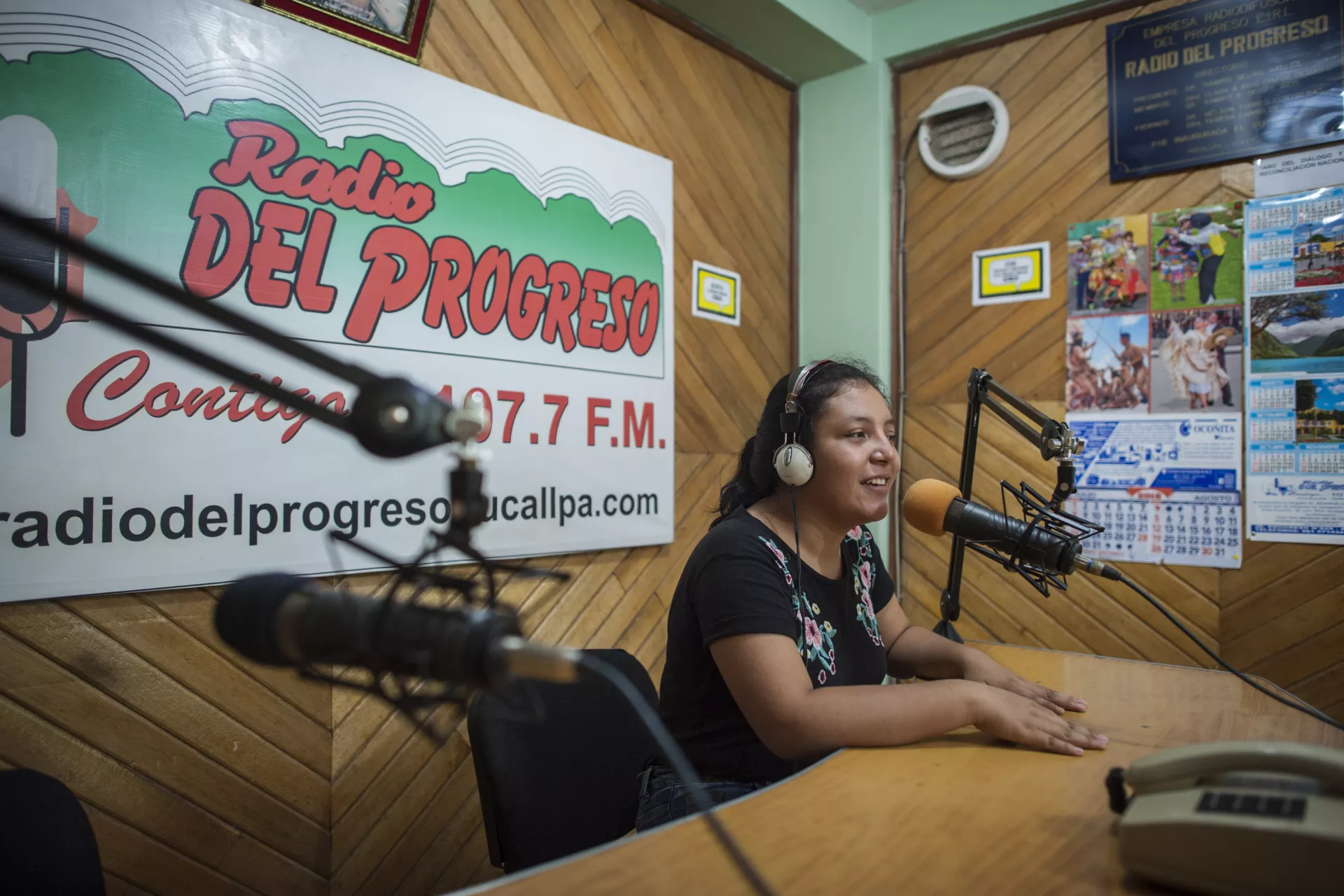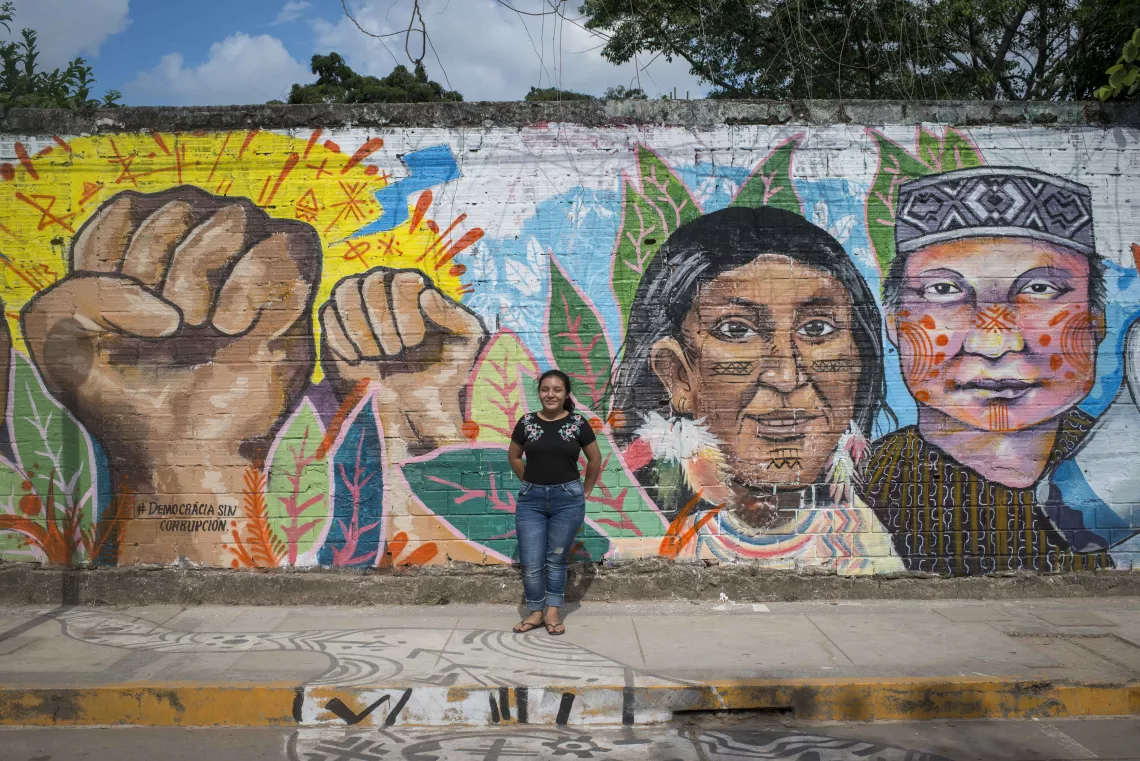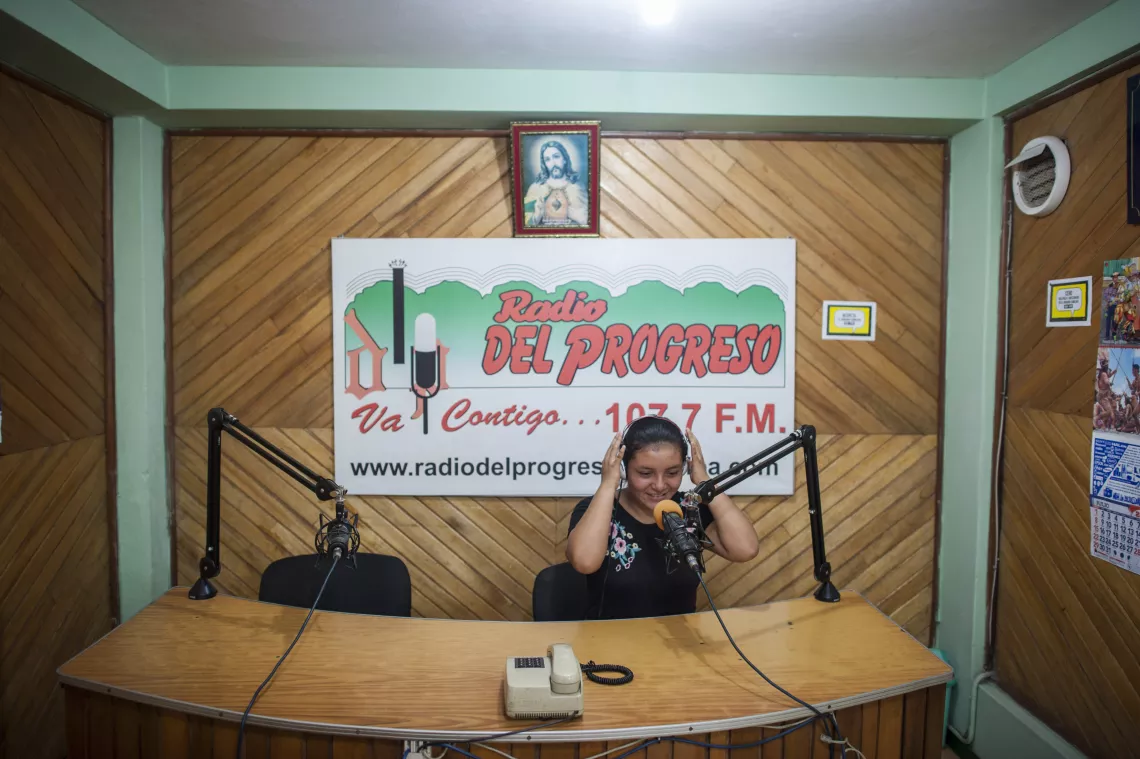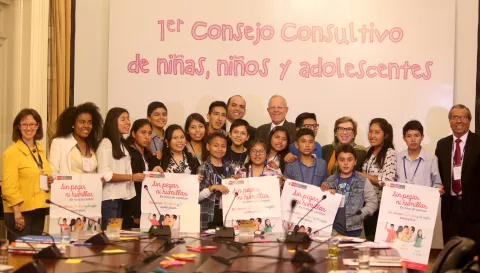Sally: “It’s important to listen and to share responsibilities”
The granddaughter of a retired teacher and a nurse, Sally learned at home what it means to help other people protect their rights

- Available in:
- Español
- English
“When I was a little girl and got home from school, there were always young people in my house meeting with my uncle. I listened to them express their opinions on different issues and I wanted to speak too, but they said I was too young and wouldn’t let me take part. Once I was 11, I was able to join in.”
Over the last two years, Sally has been taking part in "Líderes y lideresas en tiempo libre" ("Leaders in their spare time"), where she has taken on leadership roles for various activities and helped present, promote and produce two radio programmes. “At the beginning I talked really quietly, but I gradually became more confident and now I’m more confident when I talk. I even lead workshops about sexuality and health for other young people, and I’ve been involved in presenting one radio programme and am now working on another series,” she says with a smile that still hints at her earlier shyness.
“But above all, I learned to listen to others and to understand that I don’t have to do everything, that you have to be organized and share work so that everyone gets some experience”, she adds.

She’s currently torn between becoming a psychologist or a lawyer. She has decided that after university she will spend time getting to know the region because she believes that the only way to contribute to the development of people and their communities is by really understanding them and their circumstances.
“I’m attracted to psychology because I like talking to my classmates and encouraging them to keep going despite their problems. Law is another possibility because I don’t like keeping quiet when our rights are under threat. For example, teachers always avoid talking to us about sexuality. When my classmates ask about it, the teachers say we’ll look at that subject later. So I ask again or raise the issue to make it clear that they are avoiding giving us information that we’re entitled to,” she says.
“Lots of adults say that we don’t know anything because we haven’t got any life experience yet, that we can offer our opinion when we’re older. That’s not the case because we experience, see and think about things and we can give an opinion based on that. Luckily this mentality is now changing.”

Sally thinks that the time has come for women to run things in Peru and in Ucayali “because they are usually more honest”. “I used to think I would never get involved in politics, but after seeing the good work being done by a woman who used to be in the group who is now in the regional government, I think it’s important to have a presence in these spaces to create the public policies that are needed for the development of teenagers and of the region,” she says.


